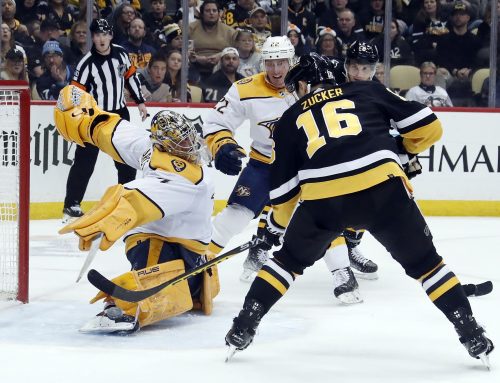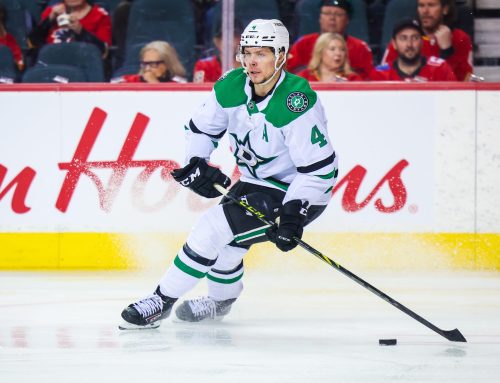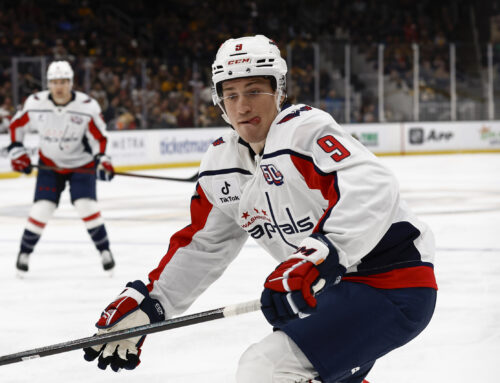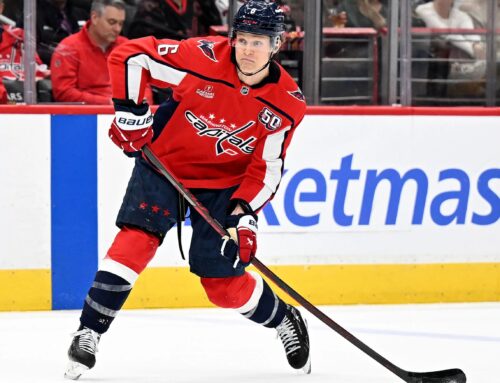
Eric Daoust on how to work around expensive players who aren’t playing up to expectations.
All hockey players have slumps from time to time. As frustrating as it is for the player himself, it will really mess with the emotions of his fantasy owners. We live in the moment so it is often difficult to look past a recent string of blank stat lines and focus on the bigger picture. In salary cap leagues this can be even more frustrating when this player has an expensive cap hit.
A perfect example this year is Shea Weber.
Obviously, the last thing you want to do is make a hasty decision that you regret later. Likewise, it is tough to sit back and let important roster players cost you a chance at a league championship. The key is trying to figure out if the player will bounce back, how long it will take and how long are you willing to wait.
The best indicator of a player's ability to bounce back is his own historical stats. If the player is a proven producer over many years, chances are that he will be able to turn things around and return to his normal output.
It is also important to understand everyone's value in your league. Using the Weber example, in a points-only league his cap hit of $7.8 million is a very tough sell for a defender who has only eclipsed the 50-point mark once. Looking at last year's defenseman points list, there are many examples of blueliners who can produce points at Weber's level or slightly below while saving a ton of money for your team. So in this case, your leash for Weber may be pretty short and any slump will be much more frustrating because of the monster contract.
However, in multi-category leagues Weber is one of the best players in the world to own. In addition to goals and assists he provides a ton of hits, blocked shots, power play points and shots on goal. Here, his top-level cost is justified by elite production.
The importance of this example is to show that in different league settings a player's value will be different. Context is everything. In one situation the player can be irreplaceable and in another it may not be a bad idea to check for an alternative.
The first place to look is the waiver wire. Obviously this does not apply to a guy like Weber but will apply in most other cases. The wire is ideal because help can be obtained without agreeing to a trade that gives a rival something that he covets. Depending on your league's rules about number of drops per season or your keeper league potentially having buyout fees, this may be the easiest method to give your team a spark. Here you have the option of seeking a similar proven player who is producing in the moment or you can even find a cap bargain player who can give your team more flexibility for future transactions.
Most importantly, you want to be patient and make the right decision. Do not overestimate the patience of your rival GMs. They are facing slumps of their own and may make the shortsighted decision of dropping a strong player to chase a flavor of the week. They will give you opportunities to improve your roster during the season.
Then there is the option of seeking a trade. The downside, again, is that the opposing GM must agree to the trade, implying that he gets something that he likes out of it. But there are great trade opportunities that will be made available throughout the season, especially when someone gets fed up with one of their own underachieving players. You can offer to swap struggling players to ease the headache, at least temporarily. However, if you do this try to acquire a player who either has a better track record than the one you are giving up to increase the odds of a bounce-back or a lower cost. And if a star player is put on the trade block, you can try to buy low and sell one of your own overachieving players at his high point, provided that you have the cap space to do so.
As much as we want to be patient with players to break out of their dry spells and start producing at their normal level, there comes a time when enough is enough. The wait is a pretty costly one if it takes away your chance to win a pool or qualify for the head-to-head postseason. Recently many have been dropping former champion scoring defenseman Mike Green while others have been getting increasingly frustrated with Drew Doughty. Sure the upside is there but in most leagues there are alternative options that may not have the same long-term upside but are better immediate contributors. And if the alternative does not work, there are other options on the wire that can be tried.
None of us can see into the future so we do not know if the decision we make, whether it is to stand pat or sell, will work out in our favor. All we can do is learn the league rules and understand their true context. This helps understand how to handle our own tough decisions. At the end of the day, the final decision is yours to make.
Previously from Daoust:





 SEA
SEA CHI
CHI OTT
OTT EDM
EDM DAL
DAL STL
STL L.A
L.A ANA
ANA FLA
FLA CBJ
CBJ COL
COL
